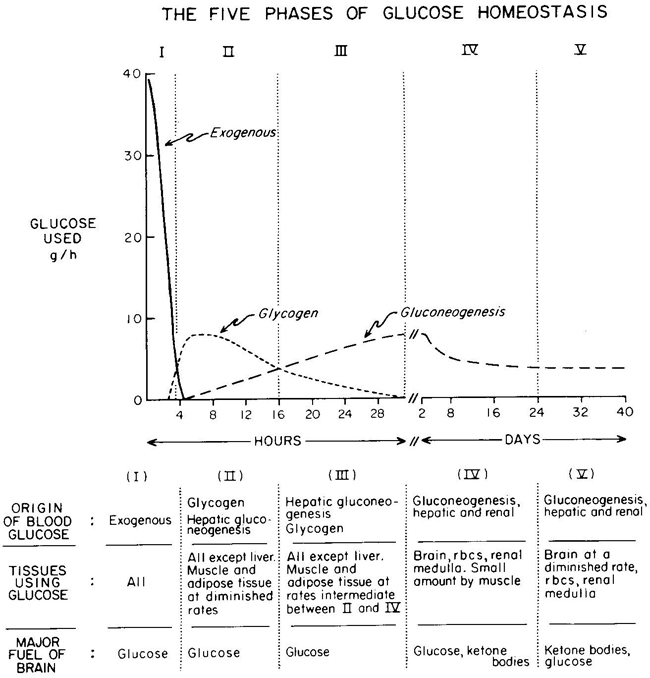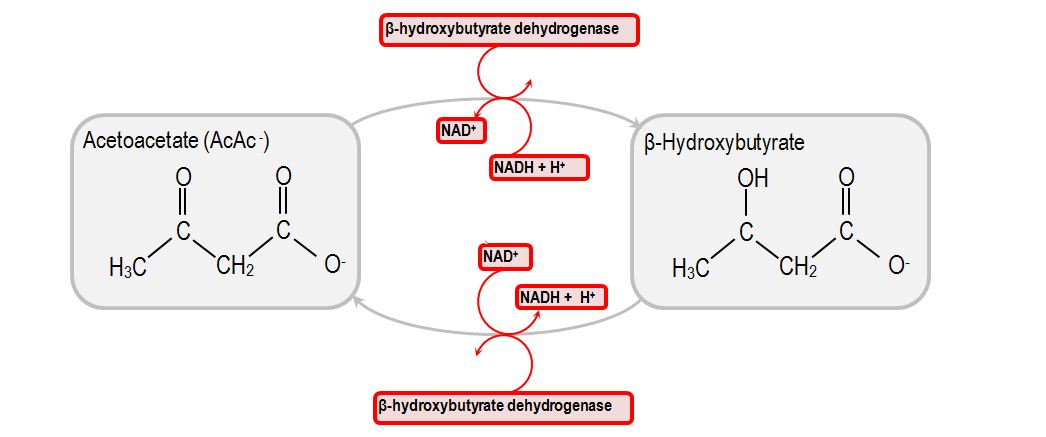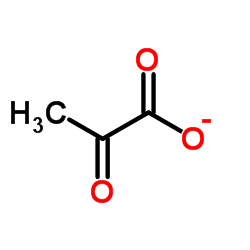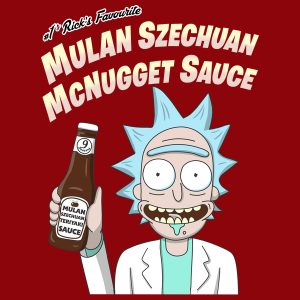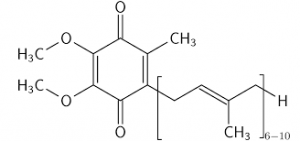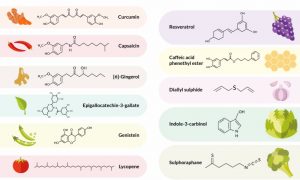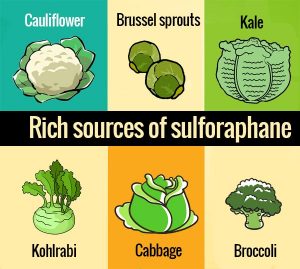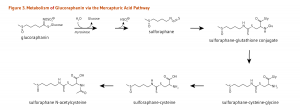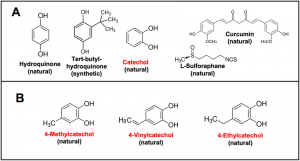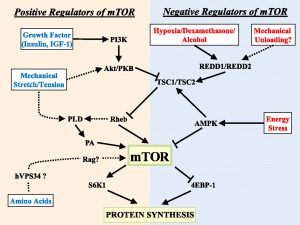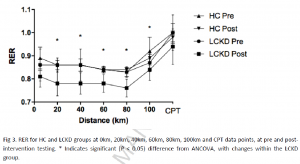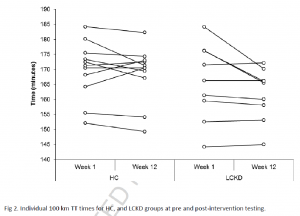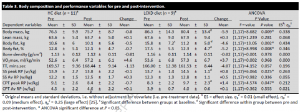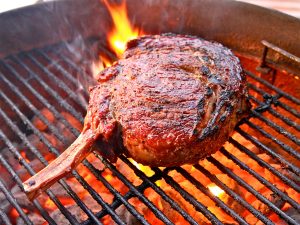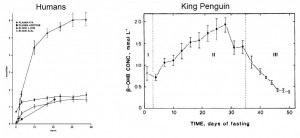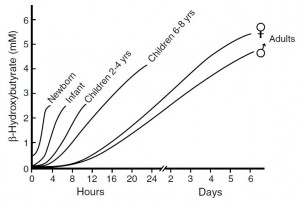Context #1. The easiest way to explain gluconeogenesis (GNG) is how it relates to starvation. If you’re not eating food, your brain still needs a steady supply of fuel. Mostly glucose at first (ketones come later), but since you’re not eating anything, glucose comes from hepatic GNG (huge potential supply*) or glycogenolysis (limited supply). *One of the precursors for GNG, glycerol, comes from stored fat (which you’ll die of something else before you run out of stored fat bc GNG).
In this case, it is mostly true that GNG is demand-driven.
If you’re interested in this, more HERE.
Context #2. Protein (which also contains GNG precursors) doesn’t acutely increase glucose. But you might think protein does convert to glucose via GNG but protein also induces a splash of insulin which is why blood glucose doesn’t rise. Read this blog post at least up to the awesome Fromentin study: “8% of the blood glucose produced under optimal gluconeogenic conditions came from dietary protein.” But also check out the Conn & Newburgh studies. And Gannon.
This is usually the reason recreational keto dieters say they can be high protein, which either ends up looking like PSMF or it’s probably not very ketogenic (which doesn’t really matter in this #context; protein is restricted in therapeutic ketogenic diets).
#BenignDietaryKetosis #BDK
For the rest of this article (or if you just like what I do and want to support it) head over to Patreon! Full access for a measly five bucks a month and there are many other options. It’s ad-free and you can cancel if it sucks 🙂
Also, I’m open to suggestions, so please don’t hesitate to leave a comment or contact me directly at drlagakos@gmail.com.
Affiliate links: still looking for a pair of hot blue blockers? Carbonshade is offering 15% off with the coupon code LAGAKOS and Spectra479 is offering 15% off HERE. TrueDark is running a pretty big sale HERE. BLUblox just upped their game with their 550‘s.
If you have no idea what I’m talking about, read this then this.
20% off some delish stocks and broths from Kettle and Fire HERE.
If you want the benefits of ‘shrooms but don’t like eating them, Real Mushrooms makes great extracts. 10% off with coupon code LAGAKOS. I recommend Lion’s Mane for the brain and Reishi for everything else.
Context #3. the mouse doctor is in 🙂
Context #3b. Chronic high protein.
Context #4. Random thoughts on animal foods.

